The execution of a California inmate revisited: The murder, mercy bid, and final day
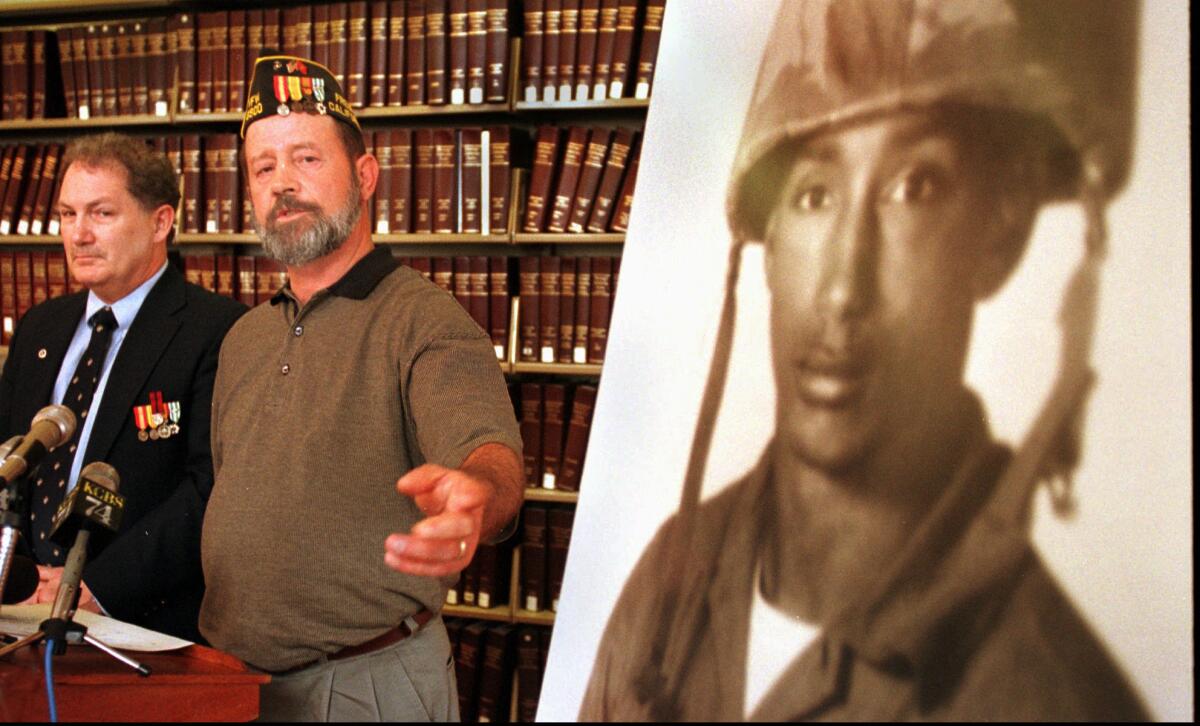
Good morning, and welcome to the Essential California newsletter. It’s Thursday, Feb. 3. I’m Justin Ray.
Warning: This story discusses sexual assault and murder.
Major news was recently announced about California’s criminal justice system.
Gov. Gavin Newsom will move people off death row at San Quentin State Prison and into facilities holding people serving life without parole. The news comes nearly three years after Newsom issued an executive order that halted executions in the state.
California has not executed a prisoner since 2006 after a series of legal challenges to its method of lethal injection.
I wondered whether any current Los Angeles Times reporter had witnessed an execution, because I think it is important for everyone for or against the death penalty to know what it means for a state to take a life.
Someone suggested I contact Metro reporter Maria L. La Ganga, who told me about a murder case that was worth revisiting. I couldn’t believe I hadn’t heard of it; it has so many tragic threads.
First, I’ll go through the savage details of the crime. Then, I’ll tell you about the killer’s mercy bid. Finally, La Ganga will explain what happened during his execution.
The brutal crime
Manuel Pina Babbitt was a decorated Vietnam War veteran who was convicted for the 1980 murder and attempted rape of a Sacramento grandmother. A coroner said that Leah Schendel, 78, died of a heart attack brought on by a severe beating and possible suffocation.
Her landlady found Schendel’s half-naked body under a mattress in her apartment. She had been punched so hard that her upper denture was shattered.
A few items were missing from her place, including her silver cigarette lighter, according to the San Francisco Chronicle. Babbitt’s brother, with whom he was living, learned about the homicide in a newspaper story. He contacted authorities when he found a lighter with the initials “L.S.” in his brother’s room. (William Babbitt, who believed he was simply getting his brother psychiatric help at the time he called for help, would later say at a clemency hearing, “I don’t want Manny’s blood on my hands.”)
Babbitt never denied the offenses but maintained that he didn’t remember committing them because they took place during a post-traumatic stress flashback. He pleaded not guilty by reason of insanity.
Babbitt was eventually convicted and sentenced to death. He was also convicted of robbing and attempting to rape another woman, whom he grabbed and beat unconscious the following night.
A clemency bid
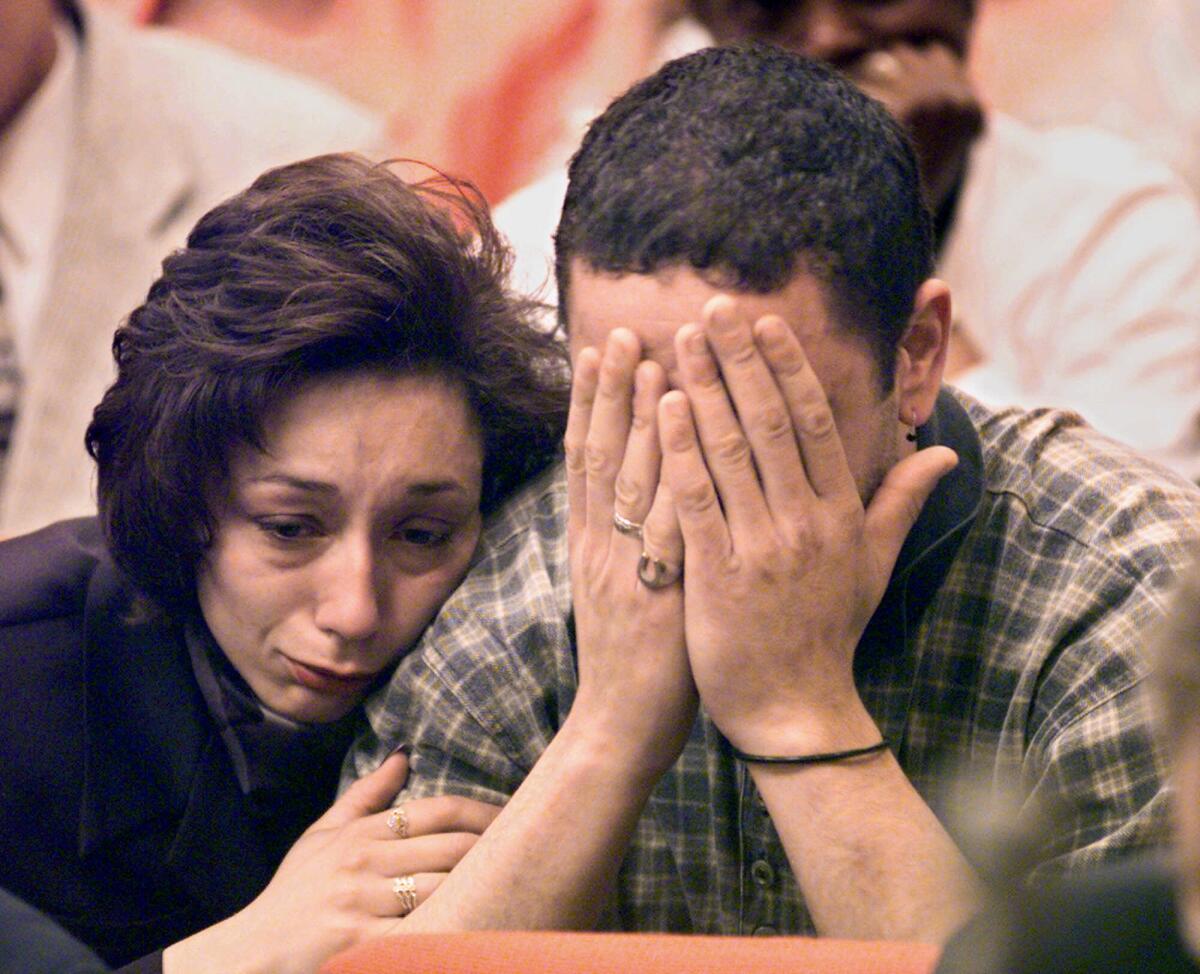
Despite the brutality of his crime, Babbitt had supporters. A clemency hearing in front of a state prison board was attended by his family, African American leaders, and even the brother of Unabomber Theodore Kaczynski (it was highlighted that the Unabomber killed three people and injured 23 others, and was sentenced to life in prison). The Chronicle also noted that supporters claimed bias, as Babbitt was Black, Schendel was white, and all of the jurors in his trial were white.
But there are things to know about Babbitt’s background.
“Babbitt, who had a seventh-grade education, enlisted in the Marines in 1967 with the assistance of a recruiter who helped him pass the entrance test,” The Times reported. “Once back in the United States, Babbitt spiraled down, getting discharged from the Marines for leaving his post, then committing a series of increasingly more serious crimes, including burglary, robbery and sexual assault.”
In 1975, he moved to Providence, R.I., where he fathered two kids, the Chronicle reported. His common-law wife recalled him running through the house, yelling, “The bombs are coming. The baby’s going to get killed. ... Can’t you hear them? We’ve got to get the baby out.”
In 1998, he was awarded the Purple Heart at a brief ceremony held at San Quentin. In March 1999, a Marine claimed that Babbitt saved his life during one of Vietnam’s bloodiest battles. As artillery rounds began to explode close by, Babbitt, then 18, pulled his comrade down a trench to escape. “I was so damn scared and running so fast I nearly missed the trench. He finally grabbed me and pushed me in,” Lynn W. Dornan told the Chronicle, in a bid to help the man who saved his life get resentenced to life without parole.
But not everyone wanted mercy for Babbitt. “It was a brutal, vicious attack,” said Laura Thompson, Leah Schendel’s granddaughter. “Even as my grandmother lies in her grave, her killer is being recast as a victim.”
Don Schendel, 70, told the Chronicle that his mother’s murder was an “evil crime,” adding that a “man who would attempt to rape an old woman who is less than 5-foot tall, less than 100 pounds, and who would beat her to death, deserves to die.”
In April 1999, Babbitt communicated with the public for the first time. He appeared in a video for his clemency bid that featured members of his family and Marines who served alongside him in Vietnam.
In the video, the Chronicle reported, Babbitt (who didn’t testify during his trial) expressed remorse but also insisted he didn’t remember the slaying. He said that during the trial, he recalled going back to his jail cell and crying for the victim, telling her in his prayers that, “You’ve earned my place in heaven. ... What else can I do? I don’t know if I caused her death, or if I killed her, or not.”
Linda Babbitt also claimed in the video that the U.S. government did not provide adequate therapy for her brother.
The execution
Gov. Gray Davis denied clemency for Babbitt, the last chance he had to avoid execution. In a 15-page decision, Davis, who also is a Vietnam vet, said, “Countless people have suffered the ravages of war,” but “such experiences cannot justify or mitigate the savage beating and killing of defenseless, law-abiding citizens.”
In May 1999, just hours after he turned 50, Babbitt was executed by lethal injection, becoming the seventh person put to death by California since it resumed carrying out executions in 1992, according to the New York Times. He requested that the $50 allotted for his last meal, which he turned down, be donated to a homeless Vietnam veteran. Officials at the prison denied the request.
Times reporter Maria La Ganga, who witnessed the execution, had this to say about it:
It is difficult. Babbitt had gone on a hunger strike before his execution, and the drugs hit him hard. He struggled against the restraints, frothed at the mouth. If I close my eyes, I can still see the pale green death chamber and his feet at the end of the gurney, white socks, no shoes. I was seriously depressed for two months after. My brain couldn’t process seeing our government — which is supposed to keep all people safe — kill someone as a room full of people watched.
Babbitt’s last words were, “I forgive all of you.”
He was laid to rest with full military honors in his hometown, Wareham, Mass. About 75 people attended the ceremony.
And now, here’s what’s happening across California:
Note: Some of the sites we link to may limit the number of stories you can access without subscribing.
L.A. STORIES
Police are investigating the apparent beating of a San Francisco 49ers fan found severely injured in the parking lot of SoFi Stadium during Sunday’s NFC championship game against the Rams. Los Angeles Times

French bulldog reunited with owners after being stolen at gunpoint in downtown L.A. On Monday, Isaiah Ramos and Charlee Johnston were walking their French bulldog, Meech. Ramos said he heard a car door open behind him, turned around and saw two men with guns. He knew immediately what would happen next. The abduction was the latest in a string of such thefts in the L.A. area targeting French bulldogs, which can be sold for thousands of dollars on the black market. Los Angeles Times
UCLA instructor’s behavior alarmed students before threats of mass campus violence. To his students at UCLA, the warning signs about lecturer Matthew C. Harris seemed abundant and longstanding. Los Angeles Times
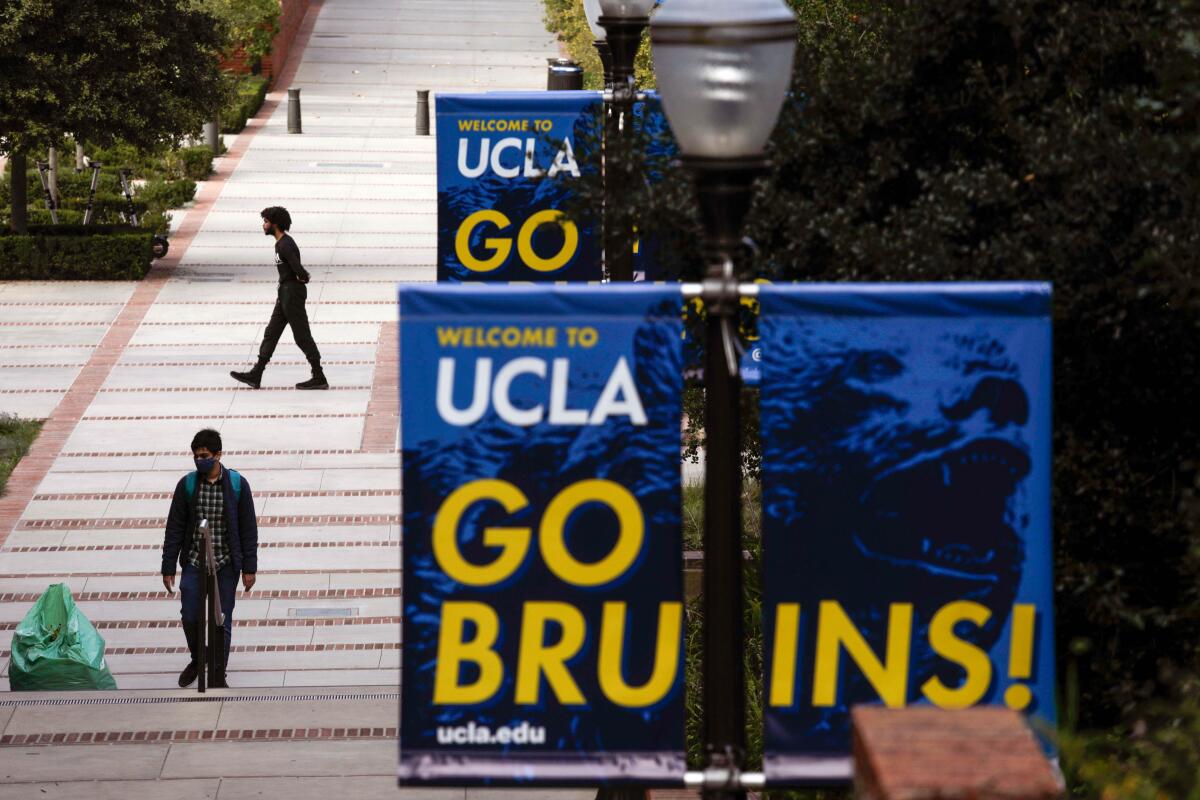
Colorado neighbors of the arrested ex-UCLA lecturer echo students’ anger over lack of warnings: “I just think it’s crazy he shut down UCLA, and the next day the guy is upstairs from me in Boulder.” Los Angeles Times
Our daily news podcast
If you’re a fan of this newsletter, you’ll love our daily podcast “The Times,” hosted every weekday by columnist Gustavo Arellano, along with reporters from across our newsroom. Go beyond the headlines. Download and listen on our App, subscribe on Apple Podcasts and follow on Spotify.
POLITICS AND GOVERNMENT
San Quentin’s dying death row. The idea of this newsletter came from the daily podcast by the San Francisco Chronicle. The newspaper produced an episode in which it spoke with reporter Kevin Fagan about the political consequences of getting rid of the death penalty. He also discusses being in death chambers and witnessing executions. It’s heavy, but very necessary to hear. Fifth & Mission
Column: The governor’s mansion is empty. Should we let homeless people move in? “California sends the wrong message by leaving the People’s House empty while rents shoot up and homeless people wander by. The governor isn’t using the place. Should we give it to someone who can?” Anita Chabria, the L.A. Times’ new Northern California columnist, writes. Los Angeles Times
CRIME, COURTS AND POLICING
A Santa Cruz woman who is charged with attempting to kill her children by crashing into the ocean told investigators she heard voices. Elisa Chavez was at Sunny Cove beach on Sept. 17, last year when she drove into the water with her 11-year-old twins. Surfers pulled the children out of the car as it was sinking. Sheriff’s Det. Ethan Rumrill wrote in an affidavit that, “her mother had died and was in heaven. The voices were telling her to drive off the cliff. If she did, she would fly … not fall, and be with her mother.” Chavez, 39, is being held in the Santa Cruz County Jail with no bail. She faces two counts of attempted murder with malice, two counts of felony child abuse, and assault. KRON4
HEALTH AND THE ENVIRONMENT
A UC San Diego freshman who died when he fell out the window of a campus dormitory in October had a blood alcohol level of 0.27, more than three times higher than the legal limit for operating a motor vehicle in California. An autopsy by the county Medical Examiner’s Office also says that Aaron Fan, 18, tested “presumptive positive” for cannabinoids, substances found in the cannabis plant. Fan’s death has been ruled an accident. San Diego Union-Tribune
California’s top physician is stepping down. Dr. Nadine Burke Harris, who became the state’s first surgeon general in 2019, announced her resignation Tuesday, her office confirmed. Dr. Devika Bhushan, chief health officer, will serve as acting surgeon general. In a statement provided to The Times on Wednesday, Burke Harris said, “I am incredibly proud to have been part of a team that, together, worked tirelessly to protect the health and well-being of all Californians.” Los Angeles Times
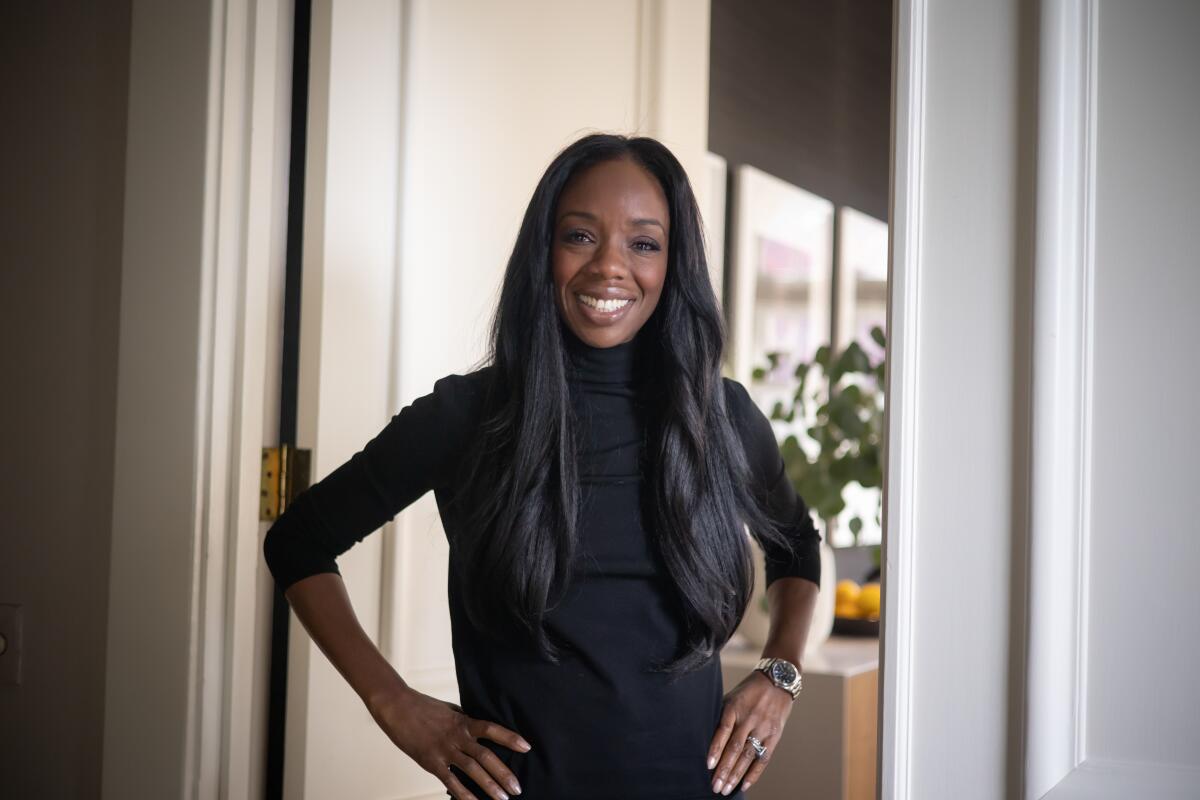
CALIFORNIA CULTURE
A group of women are suspected of distracting people at a Buddhist temple and stealing a lot of money from one of the monks. The Fresno Cambodian Buddhist Society temple welcomes visitors, and didn’t hesitate to share a meal with three women who arrived in a gray van Sunday morning. Everyone left the building for the occasion. When the women drove off, they entered the building and noticed some things were missing. One of the monks lost his passport, citizenship papers, a robe and a safe with $35,000 in it. He was saving money for his son’s wedding in Cambodia. KFSN-TV
Could the L.A. River dry up? Fears grow as cities work to recycle more wastewater. As Los Angeles and other cities seek to recycle 100% of their treated sewage, some fear the waterway could dry up altogether. Los Angeles Times
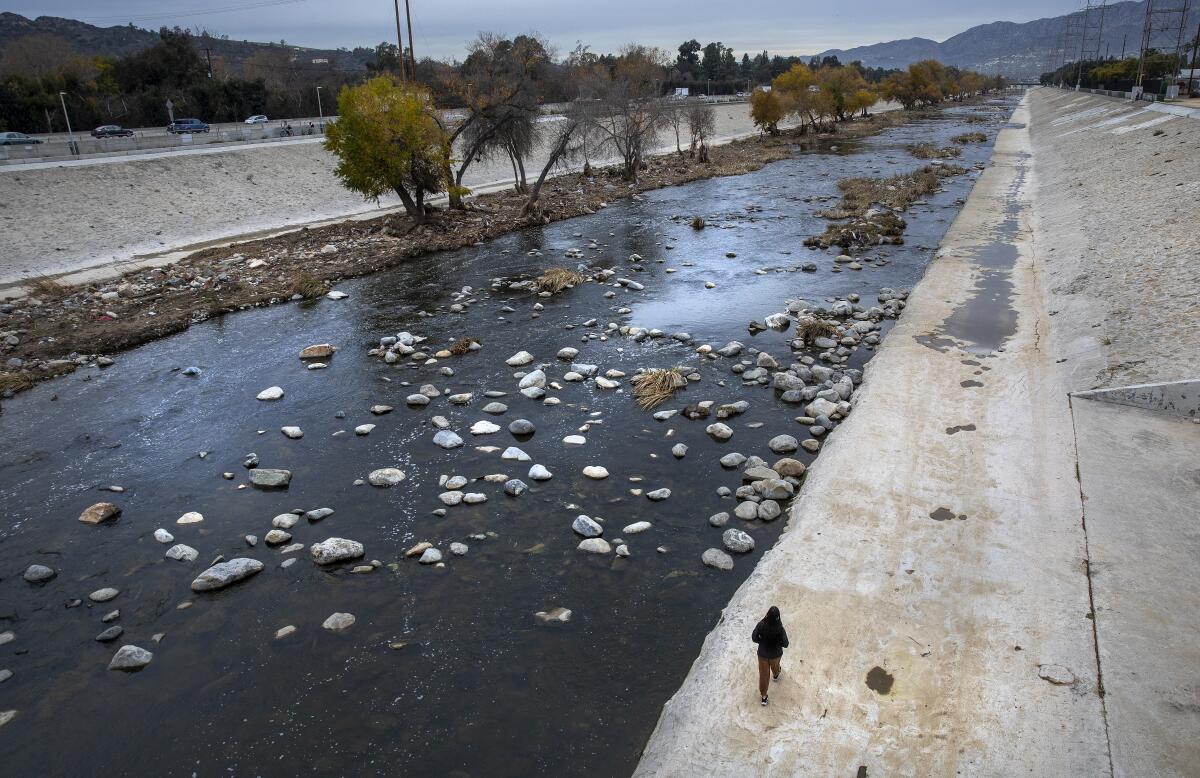
Free online games
Get our free daily crossword puzzle, sudoku, word search and arcade games in our new game center at latimes.com/games.
CALIFORNIA ALMANAC
Los Angeles: Sunny 66 San Diego: Sunny 63 San Francisco: Overcast 60 San Jose: Overcast 63 Fresno: Overcast 61 Sacramento: Overcast 60. I see it.
AND FINALLY
Today’s California memory is from Tina Paris:
In the early 1960s my family (2 parents, 3 kids, including me) moved from Pennsylvania to California. We rented a house with one bathroom (that part is important), and a fully ripe apricot tree in the back yard. We totally pigged out on the apricots, never had eaten them previously. Absolutely delicious. Do I really need to tell the rest of the story? Sixty years later, I still love fresh or dried apricots, but in extreme moderation.
If you have a memory or story about the Golden State, share it with us. (Please keep your story to 100 words.)
Please let us know what we can do to make this newsletter more useful to you. Send comments to essentialcalifornia@latimes.com.
Start your day right
Sign up for Essential California for news, features and recommendations from the L.A. Times and beyond in your inbox six days a week.
You may occasionally receive promotional content from the Los Angeles Times.




